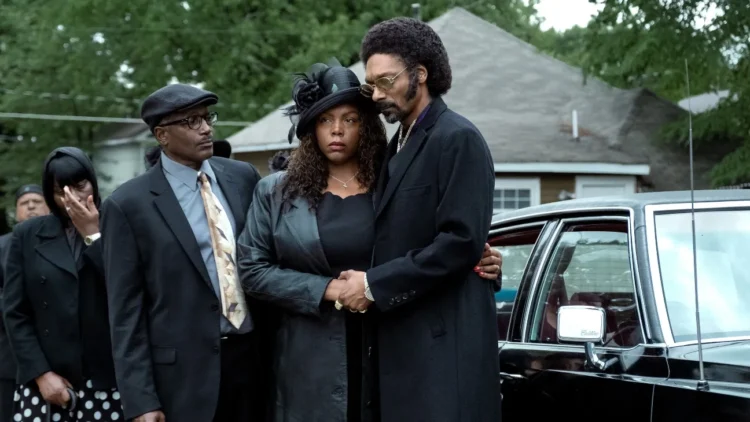: Unveiling the Shadows: BMF Members and the Impact of Snitching

The Black Mafia Family (BMF), once a formidable force in the world of organized crime, has a complex history marked by both triumphs and tribulations. Among the controversies that surrounded this notorious organization, one of the most intriguing and divisive issues is the phenomenon of members who chose to cooperate with law enforcement—commonly known as “snitching.” In this article, we will delve into the stories of BMF members who decided to break the code of silence, exploring the reasons behind their decisions and the far-reaching consequences that ensued.
The Rise and Fall of BMF:
The Black Mafia Family, founded by brothers Demetrius and Terry Flenory in the late 1980s, gained notoriety for its involvement in drug trafficking, money laundering, and other criminal activities. At its peak, BMF had an extensive reach, operating in various cities across the United States and amassing significant wealth. However, the empire’s foundation was built on illegal activities, leading to the inevitable attention of law enforcement agencies.
The Snitching Dilemma:
As BMF faced increased scrutiny from federal authorities, some members found themselves caught in a moral and legal dilemma. The notorious “no snitching” code prevalent in organized crime groups clashed with the reality of lengthy prison sentences and the prospect of losing everything. The pressure to cooperate with law enforcement became a defining moment for several BMF members.
Big Meech and Southwest T:
One of the most high-profile cases involving BMF members turning into informants is that of Demetrius “Big Meech” Flenory and his brother Terry “Southwest T” Flenory. In 2005, both brothers were arrested and charged with conspiracy to distribute cocaine and money laundering. Facing the possibility of spending the rest of their lives behind bars, the Flenory brothers decided to cooperate with the authorities.
Big Meech and Southwest T provided crucial information about the inner workings of BMF, leading to the indictment and conviction of numerous members. Their cooperation marked a significant turning point in the BMF saga, leading to a series of arrests that dismantled the organization.
Bleu Davinci:
Another prominent BMF member who chose the path of cooperation was Ricardo “Bleu Davinci” Lewis. Arrested in 2005 on drug trafficking charges, Bleu Davinci decided to become a government witness. His testimony and cooperation contributed to the conviction of several BMF members, further weakening the once-mighty criminal enterprise.
Motivations Behind Snitching:
Understanding why BMF members decided to become informants requires a nuanced examination of their individual circumstances. While some cooperated to secure reduced sentences or favorable plea deals, others may have felt betrayed by the organization or sought to distance themselves from a life of crime.
Self-Preservation:
Facing the prospect of spending decades in prison, the desire for self-preservation often becomes a powerful motivator for individuals to cooperate with law enforcement. The harsh reality of long sentences, coupled with the potential loss of family and freedom, pushes some BMF members to prioritize their personal well-being over loyalty to the organization.
Betrayal and Disillusionment:
Within the intricate dynamics of organized crime, betrayal and disillusionment can play a significant role in members deciding to cooperate. Some may feel abandoned or betrayed by their associates, leading them to break the code of silence out of a sense of self-preservation and revenge.
Consequences of Snitching:
The decision to cooperate with law enforcement comes with its own set of consequences. While some BMF members may have hoped for leniency, others faced backlash from their former associates and the wider criminal community. Snitching in the world of organized crime carries a stigma that can have life-threatening implications for those who choose to cooperate.
Retribution and Danger:
BMF members who decide to become informants often face the risk of retribution from their former associates. The unwritten code of silence is deeply ingrained in organized crime culture, and those perceived as traitors are viewed with disdain. The danger extends beyond prison walls, as individuals seeking revenge may target former members and their families.
Fractured Relationships:
Snitching not only jeopardizes the safety of the informant but also fractures relationships within the criminal organization. Loyalty is a cornerstone of organized crime, and the act of cooperating with law enforcement can lead to a breakdown of trust among remaining members. This internal discord can weaken the organization further and contribute to its ultimate downfall.
Conclusion:
The stories of BMF members who chose to cooperate with law enforcement highlight the complexities of life within organized crime. The tension between the code of silence and the harsh realities of facing lengthy prison sentences creates a moral and existential dilemma for those caught in the web of criminal enterprises. The impact of snitching extends far beyond individual cases, reshaping the dynamics of organized crime and leaving a lasting imprint on the history of groups like the Black Mafia Family.
-
Q: Who are some notable BMF members who chose to cooperate with law enforcement?
A: Some prominent BMF members who decided to become informants include Demetrius “Big Meech” Flenory, Terry “Southwest T” Flenory, and Ricardo “Bleu Davinci” Lewis.
-
Q: Why did BMF members choose to cooperate with law enforcement?
A: The motivations varied among individuals, with common factors being the threat of lengthy prison sentences, the desire for self-preservation, feelings of betrayal or disillusionment within the organization, and the pursuit of leniency or favorable plea deals.
-
Q: What charges were brought against BMF members who cooperated with law enforcement?
A: Charges against cooperating BMF members included conspiracy to distribute drugs, money laundering, and other related offenses. These charges contributed to the dismantling of the BMF organization.
-
Q: What impact did the cooperation of BMF members have on the organization?
A: The cooperation of key members such as Big Meech, Southwest T, and Bleu Davinci led to a series of arrests, indictments, and convictions. This significantly weakened BMF and played a pivotal role in the downfall of the criminal organization.
-
Q: Did BMF members who cooperated face dangers or threats?
A: Yes, individuals who chose to cooperate with law enforcement faced significant risks, including retribution and danger from their former associates. The unwritten code of silence within organized crime cultures often leads to severe consequences for those perceived as traitors.
-
Q: Did the cooperation of BMF members contribute to the end of the organization?
A: Yes, the cooperation of key BMF members provided law enforcement with crucial information, leading to the indictment and conviction of numerous members. This, in turn, contributed to the dismantling of the Black Mafia Family.
-
Q: How did the act of snitching impact the relationships within the BMF organization?
A: The act of snitching fractured relationships within the BMF organization, as loyalty is a fundamental aspect of organized crime culture. The internal discord resulting from members cooperating with law enforcement further weakened the organization.
-
Q: Were there any legal consequences for BMF members who cooperated?
A: While some cooperating members received leniency or favorable plea deals, they still faced legal consequences for their involvement in criminal activities. These consequences varied depending on the individual’s level of cooperation and the information provided to law enforcement.
-
Q: Did the stigma of snitching extend beyond prison walls?
A: Yes, the stigma of snitching in the world of organized crime extended beyond prison walls. Individuals who cooperated with law enforcement faced not only the risk of retribution from former associates but also the potential dangers of retaliation in their post-prison lives.
-
Q: How did the phenomenon of BMF members snitching impact the broader history of organized crime?
A: The phenomenon of BMF members snitching reflects the complex and dynamic nature of organized crime. It highlights the internal struggles, moral dilemmas, and consequences that individuals face when choosing to cooperate with law enforcement, leaving a lasting impact on the history of criminal organizations.






